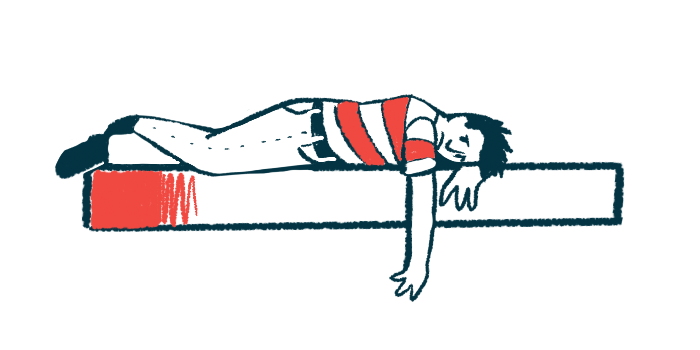Higher Risk of Sleep Apnea for Cushing’s Patients, US Study Finds
Written by |

Patients with Cushing’s syndrome are almost two times more likely to develop sleep apnea — a condition in which a person ceases to breathe for at least 10 seconds while sleeping — than the general population, according to a U.S. database study.
These findings highlight the importance of screening for sleep apnea, including obstructive sleep apnea, which is caused by a blockage in the airways, in patients with Cushing’s syndrome.
“Oftentimes, as clinicians, we have tunnel vision and overlook underlying coexisting medical conditions, especially disorders such as obstructive sleep apnea. [Obstructive sleep apnea] is one of the medical disorders that is often missed during diagnosis and is the most common underrecognized and underdiagnosed medical condition,” the researchers wrote.
The study, “Association Between Cushing’s Syndrome and Sleep Apnea: Results From the National Inpatient Sample,” was published in the journal Cureus.
Cushing’s syndrome is an umbrella term for disorders in which the stress hormone cortisol is found in excessively high levels in the body. People with these disorders — including Cushing’s disease, which accounts for approximately 70% of all cases — are at risk of developing other conditions, such as high blood pressure, diabetes, obesity, and sleep problems. Notably, one of the common symptoms of Cushing’s disease is excessive weight gain.
Some studies have found a link between sleep apnea, more specifically, obstructive sleep apnea, and Cushing’s syndrome. Researchers suspect that fat accumulated at the back of the neck of patients with Cushing’s may cause the upper airways to collapse during sleep. Obstructive sleep apnea is associated with daytime fatigue, resulting in a major impact on patients’ quality of life.
Now, researchers at The Brooklyn Hospital Center, in New York, and at Rapides Regional Medical Center, in Louisiana, aimed to determine if patients with Cushing’s syndrome are at a higher risk of developing sleep apnea independent of the influence of known predisposing factors of this condition, such as obesity.
The team screened the Nationwide Inpatient Sample (NIS) database, an inpatient healthcare database with records of about 7 million patient hospital stays per year from more than 1,000 hospitals.
Information from 2017 to 2018 was retrieved for all Cushing’s syndrome patients ages 18 and older. Gathered data included age, gender, and the presence of other conditions, such as sleep apnea, high blood pressure, diabetes, and obesity.
Among 6,023,852 hospitalized patients, a total of 2,248 people were diagnosed with Cushing’s — an estimated prevalence of 0.037%. People with Cushing’s syndrome were slightly younger than those in the general population (mean of 54 vs. 58 years), and most were female (76% vs. 57%).
Sleep apnea was more frequent in people with Cushing’s than in the general population (21.9% vs. 8.7%), and so was obstructive sleep apnea (18.6% vs. 7.2%).
Using statistical analysis, researchers estimated that the probability of people with Cushing’s developing this condition was 1.79 times greater than that of the general population, independently of other studied risk factors.
They also found that this sleep disorder was strongly associated with obesity, chronic lung disease, high blood pressure, restless leg syndrome, and diabetes.
“Our study is the largest to date to evaluate patients with Cushing’s syndrome and sleep apnea in the United States,” the researchers wrote.
“Sleep apnea still remains an underdiagnosed medical condition, and this study reinforces the basic necessity to screen for sleep apnea during routine clinical practice in high-risk patients, including those with Cushing’s syndrome,” they wrote.






